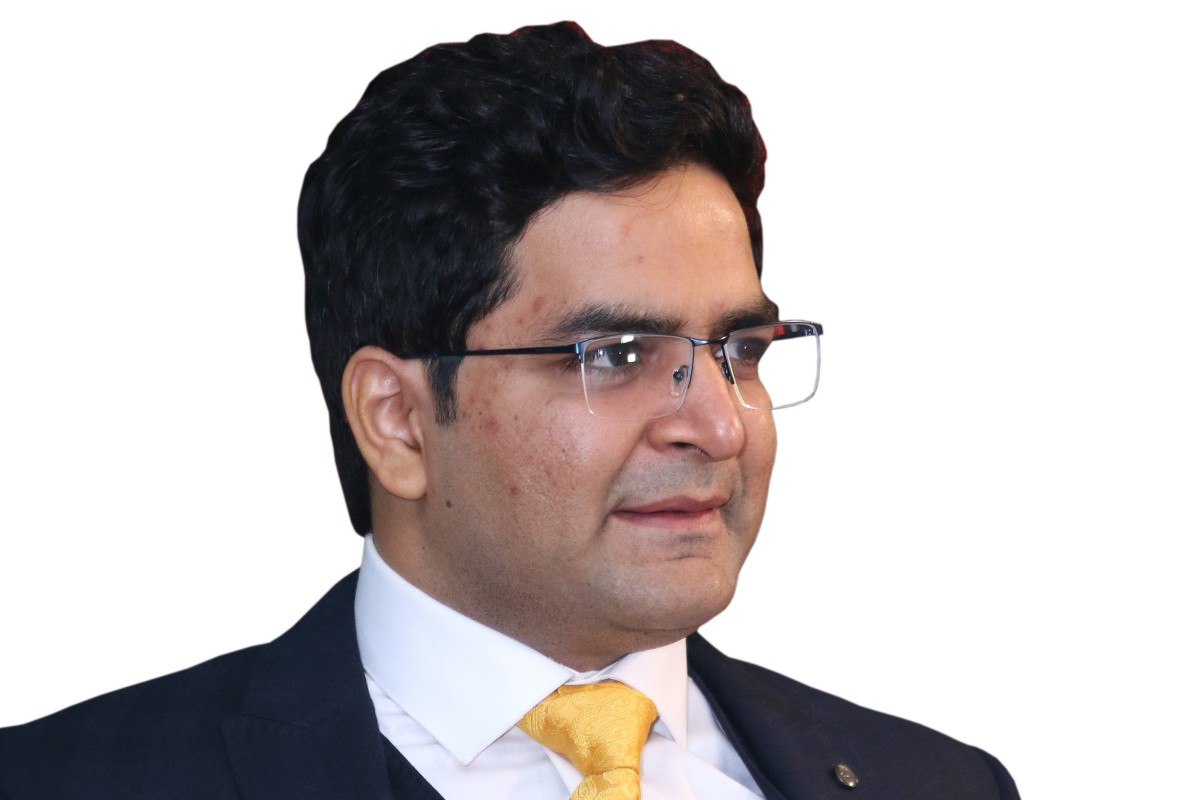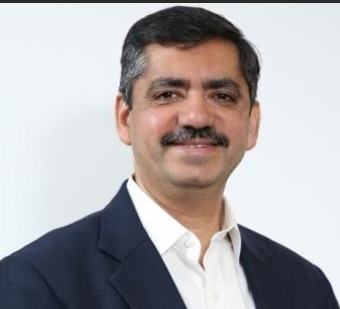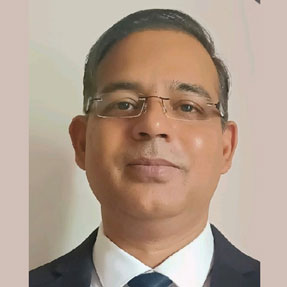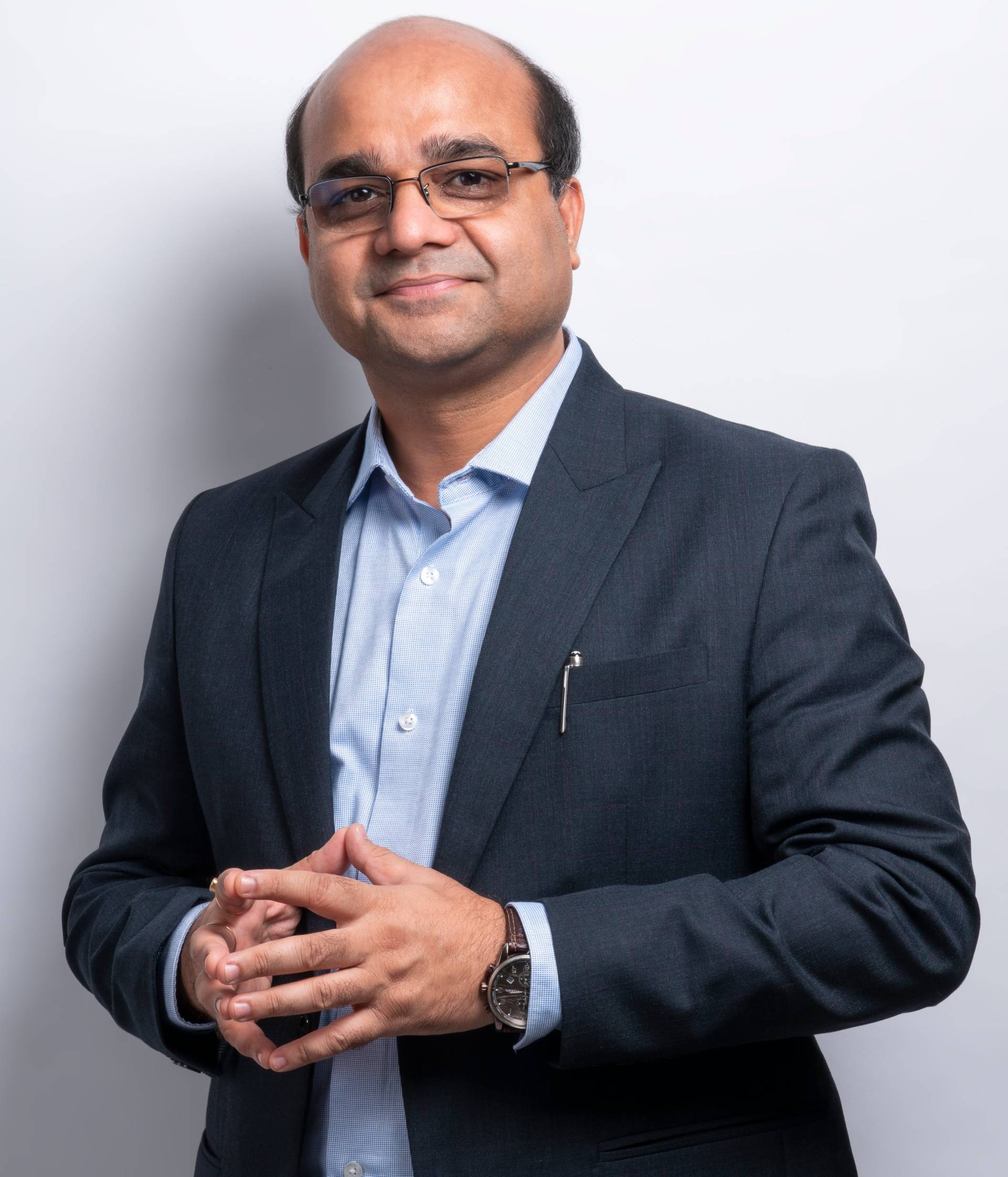The fintech revolution, strengthened by progressive regulatory efforts like UPI and RBI’s digital push, is enabling the MSME entrepreneurs to leapfrog into a future powered by digital payments and access to capital. Even the smallest storekeeper can now compete in a digital-first economy.

FinTech BizNews Service
Mumbai, June 26, 2025: As 27th June is recognized as MSME Day, Fintech and NBFC Leaders share their commitment on MSME Day. The spokespersons of the leading Fintechs and NBFCs -- Cashfree Payments, EasyPay, Signzy, M1xchange, Satin Finserve Limited, PayNearby, Progcap, and Tide India -- provide their valuable comments, while celebrating MSMEs' importance in the Indian economy.
Akash Sinha, CEO & Co-founder, Cashfree Payments

"India’s MSMEs, from the corner kirana store to the home-grown artisan, are not just business units, they are the economic lifeblood of the country, contributing over 30% to the GDP and supporting more than 110 million livelihoods. Yet, for decades, they’ve operated within the confines of cash-based systems, informal credit, and limited digital access, hindering their scale beyond local boundaries.
Today, that story is changing. The fintech revolution, strengthened by progressive regulatory efforts like UPI and RBI’s digital push, is enabling these entrepreneurs to leapfrog into a future powered by digital payments and access to capital. Even the smallest storekeeper can now compete in a digital-first economy.
For India to realise its vision of a ‘Viksit Bharat’, we must invest in unlocking the potential of every MSME, because when small businesses go digital, they don’t just grow, they lead. They create jobs, drive innovation, and open doors to global markets. This is more than a digital transformation; it’s a national movement. And this is India’s MSME moment."
Mr. Nilay Patel, Founder & Managing Direct, EasyPay

“India's 64+ million MSMEs are the bedrock of our economic resilience and a wellspring of grassroots innovation. From bustling kirana shops to dynamic small manufacturers, they embody the aspirations of millions and are vital engines of employment nationwide. We've seen significant strides in digital adoption, particularly within Tier II and III cities. However, many MSMEs, especially those in rural and semi-urban areas, have historically faced challenges in accessing larger markets and fully participating in the digital economy. Initiatives like ONDC are actively bridging this gap, providing small businesses with an expansive digital marketplace and enhanced access to formal financial services.
At EasyPay, we empower MSMEs through doorstep outreach, vernacular training, and comprehensive digital solutions meticulously designed for local adoption. We envision the future of MSMEs as intrinsically linked to tech-enabled empowerment – from AI-driven insights to dependable, hyper-personalized financial experiences. Crucially, stronger collaboration among fintechs, policymakers, and digital platforms will be paramount in equipping MSMEs, particularly in deeper markets, with the essential tools they need to flourish and grow.”
Mr. Ankit Ratan, Co-founder and CEO, Signzy

“In India, a large section of MSMEs remains outside the formal credit net due to limited access to traditional financial documents. While some alternative data sources are already in use, they alone are not sufficient to fully assess the diverse and informal nature of MSMEs, especially in Tier 2/3 cities and rural areas. This is why fintechs are continuously innovating to uncover new, reliable data signals like satellite imagery, storefront visuals, phone intelligence, digital reviews, and even inventory estimation using AI. These unconventional sources help build a more complete picture of business health, enabling lenders to make smarter credit decisions. Supported by government initiatives like Digi-PIN and OCEN, these efforts are steadily closing the credit gap. Together, we are building an MSME ecosystem where no business is left behind, one that can access formal credit, adopt digital tools, and grow sustainably across domestic and global markets. This is not just about financing, but it’s about powering the next wave of India’s economic growth.”
Sundeep Mohindru, Promoter and Director, M1xchange

“The MSME sector continues to be the cornerstone of India’s economic growth story. Recent policy interventions — such as the redefinition of MSME eligibility, the expansion of credit guarantee schemes, and a strong push toward digital credit assessment and mandatory corporate onboarding on TReDS — signal the government’s clear commitment to building a more inclusive, tech-enabled financial ecosystem.
TReDS, in particular, has emerged as a robust digital infrastructure, facilitating over ₹6 lakh crore in invoice financing to date. M1xchange has facilitated over ₹1,90,000 crore, enabling MSMEs to access collateral-free working capital by leveraging the creditworthiness of their buyers. This not only accelerates cash flows for small businesses but also de-risks lending for banks and NBFCs.
This, however, is just the tip of the iceberg. The real opportunity lies in deepening its reach among Tier 2 and 3 MSMEs, for whom the credit access remains pronounced but digital adoption is accelerating. Here, using real-time verified data such as GST returns and trade receivables data, to help financial institutions assess MSME creditworthiness more accurately and efficiently for deep-tier financing on the platform.
Growing participation from corporates, PSUs, and government departments will be crucial to expanding this impact. Going forward, initiatives like Bharat Trade Net and enhanced export credit frameworks will play an important role in integrating MSMEs into global value chains. A collaborative approach involving policymakers, financial institutions, and digital platforms will be key to unlocking the full potential of the sector and advancing towards the goal of a Viksit Bharat by 2047.”
Mr. Dhiraj Jha, CEO of Satin Finserv Limited:

“India’s MSME sector is one of the most powerful drivers of economic growth. However, despite creating jobs especially in women-led enterprises and contributing substantially to local economies, a large portion of these businesses still operate outside the formal financial ecosystem. There exists a huge credit deficit, and we need to urgently address how we plan to cater to the financial needs of this industry. MSMEs need more than funding, they need money solutions specific to their needs and built upon local realities. At Satin Finserv, we bridge the gap through secured, small-ticket lending backed by tech-enabled systems that simplify access. But finance alone isn't enough. Enabling MSMEs means creating a broader ecosystem where entrepreneurs are participants in formal growth networks, not just recipients of funds. As we move toward a Viksit Bharat, truly inclusive development will depend on how well we integrate these businesses and ensure that MSMEs at the grassroots have the tools to grow and lead.”
Mr. Anand Kumar Bajaj, Founder, MD & CEO, PayNearby

“MSMEs play a vital role in India’s economic activity, driving employment and strengthening local communities. However, their growth is often constrained by limited access to credit, market linkages, and digital tools. To address this, the government and regulators have introduced initiatives such as Udyam Registration, collateral-free loan schemes, and ONDC to improve formalisation and market access. The RBI’s recognition of Business Correspondents as a key channel for last-mile banking has also established a functional framework to enhance digital and financial inclusion in remote areas.
At PayNearby, we believe that real impact happens when services reach people where they are. That’s why we’re enabling local retailers to deliver essential banking and digital services right at the doorstep, both for individuals and MSMEs. Strengthening last-mile access is crucial to ensuring that small businesses across Bharat are equipped to grow, compete, and contribute meaningfully to India’s economic momentum.”
Pallavi Shrivastava, Cofounder, Progcap
“The MSME sector is central to India’s economic growth but faces persistent challenges, especially limited access to formal credit. This gap restricts their ability to invest, expand supply chains, and improve operations. MSMEs in Tier 2 and Tier 3 cities also struggle with fragmented networks and poor market integration. If we aim to transition from a developing to a developed economy, we need to reimagine our MSME ecosystem, not as fragmented units but as drivers of innovation and inclusive growth. While government initiatives like credit guarantee schemes and Udyam Registration are steps forward with the MSME budget tripling in four years, a large segment remains outside formal finance. MSME- fintechs are bridging this gap through data-driven credit models and supply chain-based lending, supporting retailers and distributors reliant on informal credit. To build a future-ready MSME ecosystem, policies must be localized, digital access expanded, credit made affordable, and capacity strengthened, requiring alignment across government, financiers, fintechs, and entrepreneurs.”
Kumar Shekhar, Deputy Country Manager, Tide in India

"India’s MSME landscape is undergoing a quiet transformation. The introduction of frameworks like the ULI (Unified Lending Interface) is a step toward building a more connected and verifiable data infrastructure, which can significantly improve how creditworthiness is assessed. But access alone isn’t enough, what MSMEs truly need is trust, tailored support, and tools that reflect their dynamic realities. As lenders scale with technology, it’s crucial we don’t reduce businesses to just numbers. We must strike the right balance between automation and human judgment, between speed and sensitivity. The future of MSME lending lies not just in more data, but in better interpretation context-aware systems that understand seasonal cycles, informal cash flows, and evolving business models. Collaboration across regulators, credit bureaus, tech innovators, and financial institutions will be key. If we get this right, we won’t just solve for credit access, we’ll unlock resilience, growth, and innovation at the grassroots level."
![]()